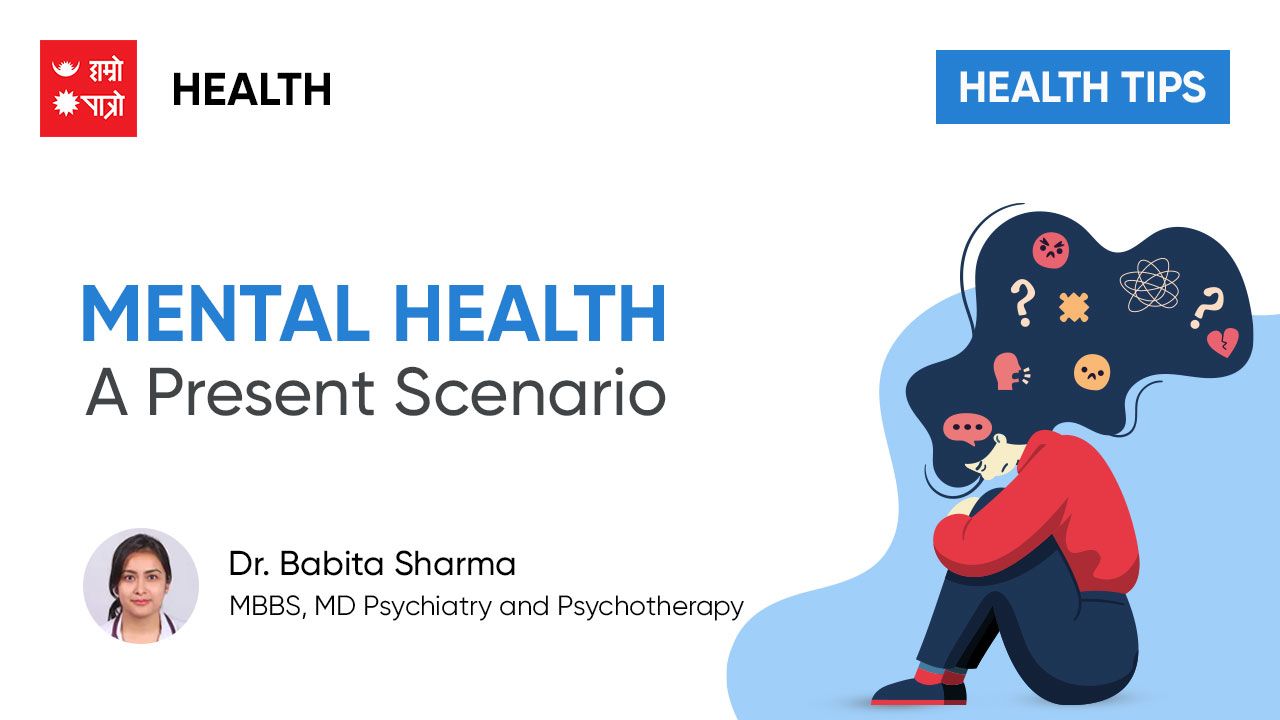
At present the scenario of mental health, although, has received more attention and acknowledgment, many well - known celebrities like Aamir khan and his daughter, Deepika Padukone, Hrithik Roshan are open to talk about this. Still, it’s quite usual practice to keep self-diagnosing oneself to have ‘Depression, OCD, Anxiety’ .. so on from google information but with the prevailing taboo, people hesitate to seek mental illness assessment and evaluation. Additionally, it is frequently seen that common individuals are beginning to openly discuss about their difficulties which clearly mimic to have had mental illnesses in some part of their life. But, the emotional toll they had experienced, seems to have misunderstanding that these are aspects of everyday stress in life and thus, continuing to normalise even the syndromic level of mental illnesses.
Many of us have participated in comprehensive health check-up packages and encouraged our elderly parents and relatives to do the same. Have we ever thought of doing mental health screenings? This issue is made worse by inadequate consideration of this undeniably significant issue, inappropriate guidance and support, or an excessive amount of information gathered from Google sources. As a result, the care pathway for these individuals is delayed, delaying early assessment and optional treatment, which exacerbates the severity of mental illness. In addition, there is a general lack of awareness regarding mental health concerns in our communities as well as an increase in perceived social stigma.
The stigma is one of the major factors in our community causing ignorance or unawareness of mental health concerns. People find it difficult to talk freely about their mental health difficulties because of deeply rooted misconceptions/beliefs, their own biases, and stereotypes they hold on generation after generation. Those people suffering with mental illnesses like substance use disorders, depressive disorders, anxiety disorders, bipolar disorder, psychosexual disorders, schizophrenia or other psychotic disorders frequently face stigma and prejudice, which makes them choose to live in silence. Then, our society start talking about repercussions like self-harm or suicide when they happen, but we weren't there to notice change in the emotion and behaviour of sufferers or ever listened to expressed thoughts of the sufferers seriously, nor we were there to provide them with empathetic support when it was most needed. People are severely hindered by this stigma, which keeps them from admitting their problems or even from getting treatment. This hesitancy keeps on rolling one after the other.
Also, talking about mental health issues is viewed as a sign of weakness. There is culturally accepted common practice of visiting local faith-healers is given a high priority over consulting mental health professionals. Moreover, many societal pressures, such as the constant pursuit of demand of success and achievement, the expectation to always appear happy on social media, and the tendency to minimize or exaggerate emotional struggles, create an environment that discourages people from acknowledging their mental health issues and set up thought of normalizing the undergoing mental health issues. In such an environment, ignorance and unawareness further flourishes.
There are movies, TV serials, Netflix series, news stories, facebook and instagram reels that have contributed to increasing awareness of mental health, but many misleading information too. More ethical media portrayals and discussions with mental health specialists prior to publication is important, practically given the present demand, which can aid in the growth of knowledge and understanding mental health and illness in better way.
Many communities lack comprehensive mental health education programmes, and despite regulations, it is not even covered in school curriculum or in medical schools. Because of this, individuals, families, society and even many healthcare professionals, may not possess sufficient knowledge about recognizing the early signs of mental illness, the need of early intervention, how, when and where to seek help.
It is essential to address the issue of ignorance or unawareness of mental health issues in our community by incorporating mental health education into school curricula, community programmes, assessment and training of different personnel in a variety of settings. The focus should also be to encourage everyone to promote honest and open dialogue about mental health in families, communities, and workplaces is another area that needs attention. It will help people to come up with their underlying issues, for which there should be a safe space to express their feelings and get helped.
The media and entertainment sectors should be encouraged to sensitively depict mental health concerns, debunking myths and promoting an increased understanding of these challenges. Even collaborating and asking mental health specialists before publishing delicate contents, for guidance and support may make a beneficial difference at effective levels. Need to take proactive steps to avoid trolling, so as to contribute to the development of a more positive, inclusive, and productive online and offline environment for all of us in the hope of a better tomorrow.
- Dr. Babita Sharma
MBBS, MD Psychiatry and Psychotherapy
Liked by: